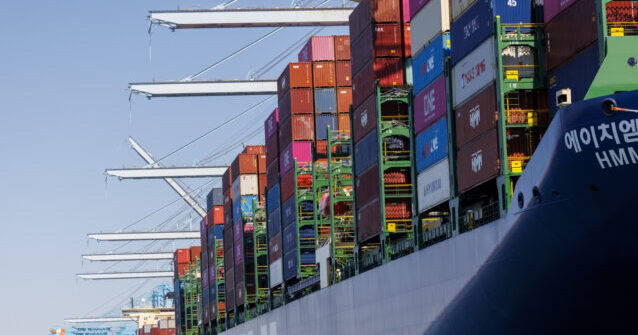Minutes after the US imposed 10% tariffs on Chinese imports last week, Beijing responded by launching an antitrust investigation into Google. China’s finance ministry also announced new tariffs on American goods including a 15% levy on coal and liquefied natural gas and a 10% tariff on crude oil, farm equipment, large-displacement vehicles and pickup trucks.
China’s Retaliatory Tariffs on $14 Billion in US Goods Now in Effect
In tit-for-tat to US President Donald Trump’s tariff threats, China has imposed retaliatory tariffs on approximately $14 billion worth of US goods, escalating the trade war between the world’s two largest economies, the Financial Times reported.
Unlike the blanket tariffs imposed by the US, China’s countermeasures—ranging from 10% to 15% levies—target key American exports, including liquefied natural gas, coal, crude oil, farm equipment and certain automotive products. Analysts view Beijing’s approach as leaving room for potential negotiations to prevent a broader trade war.
Complete Article:
)
 www.firstpost.com
www.firstpost.com
China’s Retaliatory Tariffs on $14 Billion in US Goods Now in Effect
In tit-for-tat to US President Donald Trump’s tariff threats, China has imposed retaliatory tariffs on approximately $14 billion worth of US goods, escalating the trade war between the world’s two largest economies, the Financial Times reported.
Unlike the blanket tariffs imposed by the US, China’s countermeasures—ranging from 10% to 15% levies—target key American exports, including liquefied natural gas, coal, crude oil, farm equipment and certain automotive products. Analysts view Beijing’s approach as leaving room for potential negotiations to prevent a broader trade war.
Complete Article:
)
China's retaliatory tariffs on $14 billion worth of US goods now in effect
Minutes after the US imposed 10% tariffs on Chinese imports last week, Beijing responded by launching an antitrust investigation into Google. China’s finance ministry also announced new tariffs on American goods including a 15% levy on coal and liquefied natural gas and a 10% tariff on crude...


